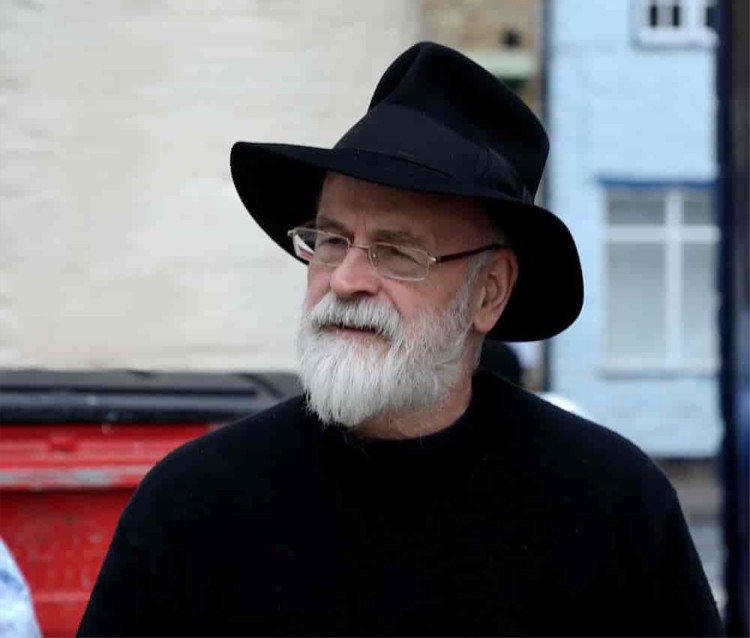

‘Better Off Dead?’ by Liz Carr and James Routh
- Title ‘Better Off Dead?’ by Liz Carr and James Routh
- Author Liz Carr (writer/presenter), James Routh (director)
- Year 2024
- Language English
- Tags Disability Critiques Expanded Eligibility High Profile Cases Documentary
- Legislative context Suicide Act, 1961, s 2 (United Kingdom) Bill C-7: An Act to amend the Criminal Code (medical assistance in dying), 2021 (Canada)
- Author of entry Joe Wood
In this 2024 BBC documentary, actor and disability campaigner Liz Carr explores reasons why assisted dying, which she calls assisted suicide, should not be legalised in the UK. Carr interviews friends, experts and advocates from both sides of the debate, including her mum, who reads out sections of the diaries she kept while Carr was becoming disabled as a teenager. In the UK, Carr speaks to politicians for and against assisted dying, plus palliative medicine doctor Katherine Sleeman, concerned for the safety of society’s most vulnerable, and columnist Melanie Reid, who became disabled after a fall and wants the option of an assisted death in the future. Carr also travels to Canada where the law on medical assistance in dying (MAID) was extended in 2021 to include people experiencing unbearable suffering but who are not terminally ill. There, she meets Ellen Wiebe, a contraception and abortion doctor whose practice now includes MAID cases, Alicia Duncan whose mother was approved for an assisted death despite perhaps requiring treatment for an undiagnosed mental health condition, and Amir Farsoud who applied for MAID while unable to secure suitable housing. Many of Carr’s conversations with interviewees hinge on interpretations of the concepts of control and autonomy. She believes a change in the UK law would allow disabled people, who already live in an ableist world, even less control over their own lives, while advocates for assisted dying believe it grants control to people who desperately need it. The programme ends with Carr meeting disability activist friends who describe the autonomy and dignity that they experience thanks to good care packages and supportive communities. Carr concludes that legalising assisted dying would entrench the discriminatory division established during the COVID-19 pandemic between ‘normal’ people and those who are older, disabled or have underlying health conditions.
The documentary is unusual for constituting a mainstream programme that openly opposes any legalisation of assisted dying. Carr bases her advocacy on the social model of disability which assumes that the surrounding culture and environment dictate the quality of life experienced by disabled people and their perception by others. This approach is evident when she speaks to Amir Farsoud who sought MAID when he could not house himself while on Canadian disability benefits: he changed his mind when his story was picked up by news channels and his debts were paid off through crowdfunding. Part of the documentary’s strength is its communication of the vitality of people living with disability. Carr and her team deliberately include a mix of confronting narratives and evidence alongside upbeat music and light-hearted jokes (Carr shouts “I’m going down the slippery slope” as she descends a ramp in Canada). These have the effect of undermining any image the audience might have of disabled people living tragic or pathetic lives – as one friend quips, ‘to want to kill yourself over who wipes your backside?!’. At the same time, some reviews picked up on the way Carr does not interview anyone with a terminal illness and talks to a Canadian doctor who is unusually gleeful and unsympathetic. ‘Better Off Dead?’ has not yet been cited in parliamentary debates but is likely to be a touchstone in the future; Carr herself has spoken on these issues to both UK and Australian parliamentarians. Notably, while the show has been widely cited by anti-assisted dying groups, there has been far less engagement from pro-groups. For example, Dignity in Dying ran a whole piece on Carr’s 2013 radio programme on the topic but have not publicly reacted to the 2024 documentary.
Suggested citation
-
Better Off Dead?, Assisted Lab’s Living Archive of Assisted Dying, Nov 2024, updated June 2025 <link>
Reviews
- Frances Ryan, ‘Better Off Dead? review – Liz Carr’s blistering film may well change your mind about assisted dying’, The Guardian, 2024 → theguardian.com
- Ben Dowell, Better Off Dead review: a powerful (and funny) case against assisted dying, The Times, 2024 → thetimes.com
- Christopher Stevens, Better off dead? review: If you think assisted dying should be legal, watch this eloquent warning, Daily Mail, 2024 → dailymail.co.uk
Media citations
- Anna Moore, ‘I’m fighting for the right to live’: Liz Carr on acting, friendship and her campaign against assisted dying, The Guardian, 2017 → theguardian.com
- Ben Thompson, Viewers moved after watching ‘disturbing’ documentary about being ‘better off dead’, LADBible, 2024 → ladbible.com
- Jeff Jacoby, ‘Opinion: Assisted suicide is a slippery slope’, Boston Globe, 2024 → bostonglobe.com
Interest Group citations
- Kathryn Jean Lopez, We’re Better Off Loved, National Review, 2025 → nationalreview.com
- Aide à mourir et validisme - Projection et discussion autour du film « Better off dead », Paris-luttes.info, 2025 → paris-luttes.info
- Care Not Killing, Liz Carr asks: “Better Off Dead?” (BBC1), 2024 → carenotkilling.org.uk
- The Christian Institute, ‘Better Off Dead?’: BBC puts spotlight on disabled opposition to assisted suicide, 2024 → christian.org.uk
- Society for the Protection of Unborn Children, “Terrifying” Liz Carr documentary exposes slippery slope of assisted suicide, 2024 → spuc.org.uk
- Society for the Protection of Unborn Children – Pro-Life, Canadian doctor who has helped kill over 400 people speaks to Liz Carr for her BBC AS documentary, 2024 → youtube.com
- Disability News Service, It’s ‘time for a conversation’ on assisted suicide dangers, says Liz Carr, ahead of her BBC1 documentary, 2024 → disabilitynewsservice.com
- Alison Wilde, Disability Arts Online, Better off Dead? Liz Carr documentary puts disabled voices at the centre of the assisted dying debate, 2024 → disabilityarts.online
- Learning Disability Today, Legalising assisted dying puts disabled people’s lives ‘at risk’, says Liz Carr, 2024 → learningdisabilitytoday.co.uk
- Not Dead Yet (USA), Actress and Activist Liz Carr Creates “Blistering” Documentary On Assisted Suicide, 2024 → notdeadyet.org
- Care for What You Believe, New BBC documentary highlights dangers of assisted suicide, 2024 → care.org.uk
- CripLife, Better Off Dead?: Liz Carr Debates Why We Shouldn’t Legalise Assisted Dying, 2024 → criplife.co.uk
- Ann Farmer, Voice of the Family, Opening the door to death for the disabled, 2024 → voiceofthefamily.com
- My Death, My Decision, The views of disabled people within the assisted dying debate, 2024 → mydeath-mydecision.org.uk
- Right to Life News, Assisted suicide legislation “terrifying” for people with disabilities, says actress Liz Carr, 2024 → righttolife.org.uk
- Elena Chamarro, ‘Plutôt mort que handicapé’, Le Club de Mediapart → blogs.mediapart.fr
Legal and Paralegal citations
- Motion on Assisted Dying, House of Commons, UK Parliament, 4 July 2022 (Tonia Antoniazzi) → hansard.parliament.uk
- Short Debate - Assisted Dying, House of Lords, UK Parliament, 6 March 2017 (Baroness Grey-Thompson) → hansard.parliament.uk
- Voluntary Assisted Dying Bill 2017, Legislative Assembly, Parliament of Victoria, Australia, 19 Oct 2017 (Murray Thompson) → hansard.parliament.vic.gov.au
Related Media
Website
Programme Website for Carr’s World Service programme on similar themes in 2013
- Programme Website for Carr’s World Service programme on similar themes in 2013 bbc.co.uk ↗
Related Archival Entries
'Terry Pratchett: Choosing to Die' by Charlie Russell

Charlie Russell (director), Terry Pratchett (writer)
After being diagnosed with Alzheimer’s, renown author Terry Pratchett investigates in a television documentary the only assisted death option available to residents of the United Kingdom: travelling to Switzerland to seek the option through Dignitas.
'Me Before You' by Thea Sharrock and Jojo Moyes

Thea Sharrock (director), Jojo Moyes (writer)
Following a road traffic collision, Will Traynor is paralysed and in need of constant care. His parents employ a young woman, Louisa Clark, to care for their son and Will and Louisa strike up an unlikely friendship and, later, a romance. Despite Louisa’s efforts to persuade Will that his life is still worth living, he decides to travel to Switzerland to end his life.